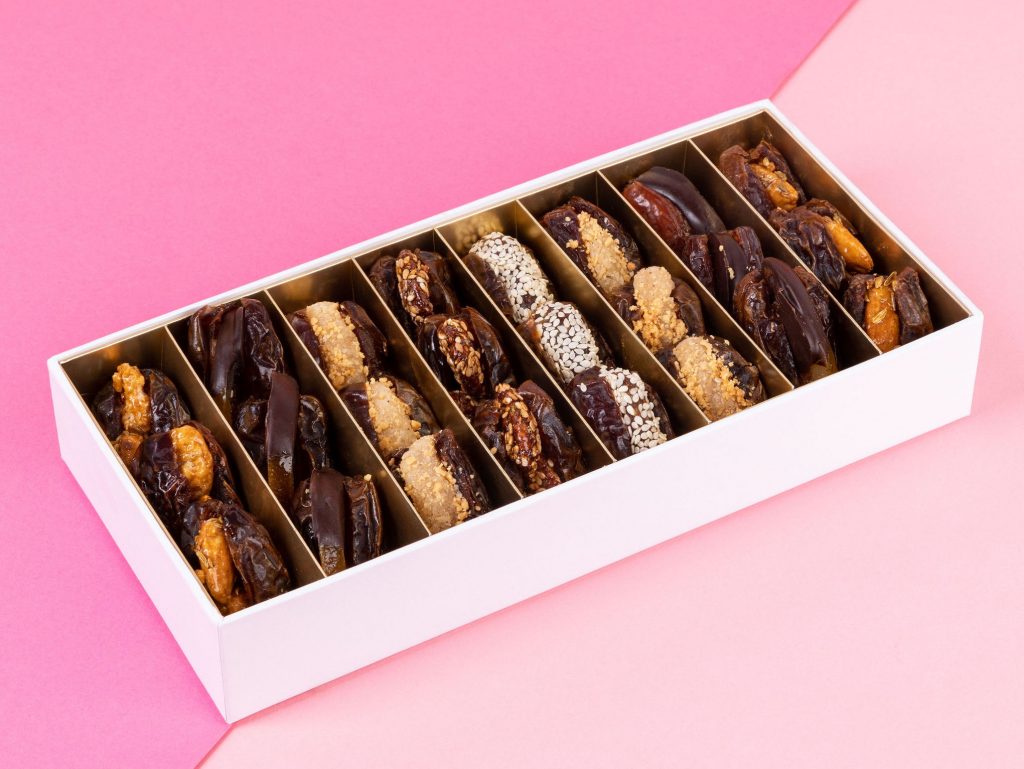The month of Ramadan, or Ramazan in Turkish, has started. The holiest of months for Muslims, Ramazan commemorates the time when the Ku’ran was first revealed to the Prophet Muhammed.
For the next thirty days, all healthy Muslims will fast during daylight hours. This means not eating or drinking anything from sunrise to sunset.
Dates – the fruit of the date palm tree – are popular in Turkey, Cyprus, North Africa and the Middle East all year-round. However, the fruit’s significance rises at Ramazan.
Muslims will regularly break their daily fast (iftar) with this delicious, nutritionally-packed food. A guide put together by luxury confectioner Raphia – Flavours of Morocco explains why.
The date is a sacred fruit symbolising health and abundance in Islamic history and culture. The date palm is mentioned over 20 times in the Ku’ran – more than any other fruit. References can be found in chapters such as the Qaf, Al-Shuara and Al-Nahl, where the date is described as a ‘blessing’.
The Hadith, which recorded the words and deeds of the Prophet Muhammad, and is second in authority only to the Ku’ran, also contains numerous references to dates. In one Hadith, the Prophet is described as saying, “Break your fast by eating dates as it is purifying.”
The Prophet Muhammad’s humble iftar table always had dates. He would break his daily fast with either a few fresh or dried dates and a sip of water, a practice followed by Muslims worldwide each Ramadan.
Dates possess countless health benefits. The fruit is high in fibre and antioxidants, which help prevent constipation and fight disease, and they are rich in nutrients such as potassium, magnesium, copper, manganese, iron, and vitamin B6, which are good for the body and brain cells.
The fruit is easy to digest and gentle on the stomach, proving a good supply of sugar and energy to the body. Its low glycaemic index means dates won’t generate a spike in blood sugar levels, making them a safe choice of sweet even for people with diabetes. Its alkaline salts can also help stabilise blood acidity, which occurs when consuming meat and other carbohydrates.

Dates hold religious significance outside of Ramadan too. The most precious gifts brought home by pilgrims visiting the holy site of Mecca are “zam-zam” [blessed] water and dates.
Traditionally, the fruit was the favoured sweet to hand out at the end of Mevlit (prayer recitations), although today other types of confectionary are also distributed.
This tasty fruit can be consumed plain, either fresh or dried. Dates also feature in dozens of sweet and savoury recipes. A healthy substitute for white sugar, dates can be added as natural sweeteners to salads, smoothies, juices, cakes, confectionary, and granolas, as well as rice, curries, and stews.
Luxury dates can also make great gifts during Ramadan and in the Eid celebrations that follow the month of fasting.
Raphia’s new Ramadan/Eid collection offer an exquisite assortment of stuffed dates in contrasting and complementary flavours and textures, such as caramelised almonds, orange blossom, chocolate, and cinnamon spices. Each selection is packaged in beautifully designed presentation boxes. Order online for delivery across the UK or worldwide.
Main picture, top, of dates being eaten at an iftar meal, 2018 © Rawpixel / iStock




